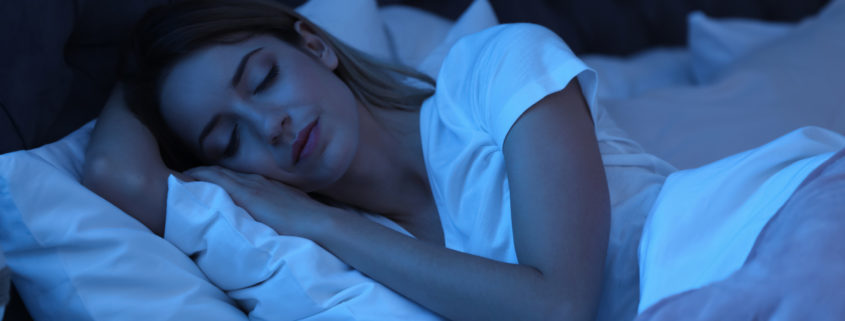Tips for a good night’s sleep
Getting enough sleep is a perennial problem for some, and I sympathise. I’ve had two stress-related periods of exceptionally poor sleep in my life, and as a result, I began to dig deep into the science to help myself and others get a better night’s sleep. Here is what I found.
Tips for a good night’s sleep: environmental factors
Our circadian rhythm is influenced by external factors such as light and darkness in the environment.
So one thing we can do is to manage exposure to light to ensure that it works for our biological and mental processes and not against them.
For example, the hormone melatonin is responsible for good sleep and is produced in the mornings. Getting outside in the morning, therefore, can help your body to create more melatonin, which will help you get your snooze on at night.
Similarly, ensuring that you use blackout blinds and turn off blue light devices (phones, tablets, laptops) at night will mean that you are creating the right environment for your body to understand it’s time to rest. Especially given that reading on a tablet, say, can stimulate your brain so much it delays sleep onset for up to 90 minutes!
Finally, in terms of sleep hygiene, it’s important to keep your bedroom cool and to use the bedroom for sleep not work, housework or storage.
No more working from bed or watching the TV while you do the ironing in the bedroom. Make it a sacred space and have a ritual at bedtime instead. Perhaps, you fold your clothes away, get into bed and spend a few minutes thinking about what went well that day. Then, turn the bedside lamp off and go to sleep.

Photo by Tan Danh from Pexels
What we eat or drink
You probably know what’s coming next… the bad boys of beverage stimulants – caffeine and alcohol.
As you may know, caffeine stresses the body through the impact it has on your blood sugar, causing spikes and collapses that make your energy levels rollercoaster through the day. The general advice in relation to improving your sleep is to avoid caffeine (e.g. in tea, coffee, chocolate) after midday and perhaps switch over to herbal tea. I found drinking Chamomile very helpful, and also the last thing at night a combination of Limeflower and Passionflower helped me to drop off.
The advice on alcohol may be trickier in some ways.
The “ideal” time to drink alcohol from the perspective of a good night’s rest is actually 5.30/6pm.
So that’s good news for the after-work drink and bad news for the drink with or after dinner. It is best avoided close to bedtime too as, whilst it can appear to help you to get to sleep – it can also cause you to wake in the night. The best advice is not to drink every night, and especially to avoid drinking on consecutive nights if possible.
Tips for a good night’s sleep in terms of what to include in your diet.
Magnesium can be very useful. You may even choose to get checked for magnesium deficiency as too little can reduce the production of neurotransmitters that help to balance mood. Supplementing with magnesium works for many people I talked to. Generally, professionals seem to recommend 500mg, especially when combined with a specific amount of calcium. You can find a professional near you by searching for the British Association of Nutrition and Lifestyle Medicine website.
Mental factors
One of the most important things I learned during my flirtation with insomnia was that the more I worried about not being able to sleep the worse things got.
Cultivate a determined attitude that your body is still getting some rest if you lay down for several hours. Refuse to count how many hours sleep you feel you actually got. This will slowly but surely begin to work. With that in mind, I’m not a great fan of the smart devices that show you your sleep pattern. Use them sparingly in my view – perhaps as a source of information – but watch out for obsessing over how much and what type of sleep you did or didn’t get.
In general, I recommend focusing on relaxation and breathing exercises instead.
My own favourite breathing exercise: imagine that your breath is like a wave, entering through your feet and washing up the body to the crown of your head. Then, on the out breath, it washes back down the body and out the feet. You can imagine that the incoming wave brings anything you need more of in your life – my go-to is calm – and then the outgoing wave carries out of you anything you don’t need any more. It’s a beautiful relaxing visualisation. Breathing out my worries, disappointments, tensions, busy-ness, helps me enormously to wind down and let go. And then I find I can sleep.
And the remaining thing you can do is get help – talk to a professional if you are concerned. I have found Reiki has helped many clients get better rest, as does yoga nidra (yogic sleep) and yoga itself.
So please do contact me to discuss how you could benefit and get a better night’s rest, or go ahead and book an appointment.
The land of nod awaits!



